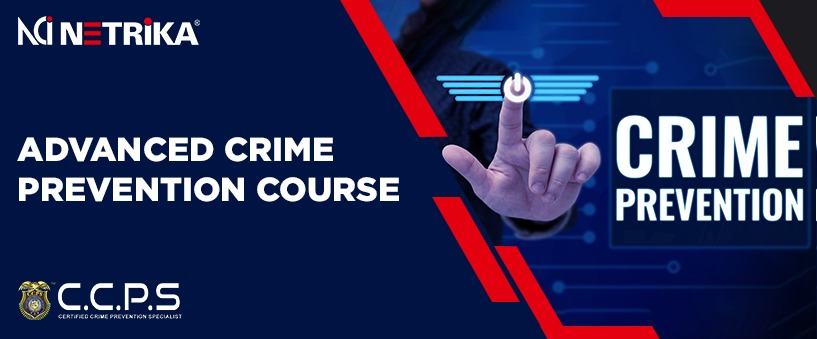
Advanced Crime Prevention Course
Advanced Crime Prevention Course
Crime prevention courses are designed to provide students with a fundamental understanding of crime prevention theory and practice, as well as other proactive policing strategies. Professionals comprehensively understand crime prevention services when they return to their local area. The course satisfies the prerequisite for a basic crime prevention course set forth in national standards for crime prevention specialist certification.
Who should attend the crime prevention training?
The target audience for crime prevention training includes local law enforcement, city and private planners, government representatives, corporate executives, community activists, crime prevention specialists, and leaders searching for creative solutions to reduce crime in their neighbourhoods.
Objectives of crime reduction training
Individuals, communities, institutions and agencies adopt various techniques to combat the personal, societal and environmental factors contributing to crime. Crime prevention has many different aspects, including theory, scientific research, applying the proper framework, intervention, and evaluation. Determining the most appropriate and efficient preventive measures requires a comprehensive understanding of crime prevention approaches, including theoretical justifications, analysis and mitigation principles.
- The best crime prevention courses equip an aspirant on how they apply problem-solving, community planning and safety and security assessments.
- Take part in challenging, practical incidents where specialists implement crime prevention principles in your neighbourhood.
- Look into the applications of lighting, landscaping, traffic-calming techniques, organisational design, cul-de-sacs, chicanes, parks and recreational areas and parking facilities in the community more thoroughly.
- Review site plans, gain knowledge of them, and offer crime prevention-based suggestions for improvements.
- Identify how crime prevention course concepts might benefit specialists and communities in real life.
After successfully completing the course, students will be equipped with the knowledge and abilities to
❖ Exhibit a comprehension of crime prevention theories and concepts
❖ Clarify the major concerns while choosing the most suitable and efficient crime prevention measures
❖ Analyse crime prevention strategies using theory and the scientific method
❖ Investigate the nuanced role that the best crime prevention courses play inside and outside the criminal justice system.
Eligibility criterion for obtaining crime prevention training credentials
The following criteria must be satisfied to become a certified crime prevention specialist. The applicant must possess the following:
- Currently (or been) employed in a public or private criminal justice organisation, public law enforcement organisation, public or private security capacity or in the building trades (Planner, Architect, Engineer, etc.), or been enrolled in college or university for at least one year and majoring in one of the building trades, criminal justice, urban design or a related field.
- Finish a basic crime prevention training course, or show documentation of completion of an equivalent recognised and approved course.
- Finish the Crime Prevention Center’s course – Certificate in Crime Prevention Studies (CCPS), with complete attendance, participation in the practical assessment exercise and a passing score of 70% on the final exam.
Recognition offered after gaining the crime prevention training credentials-
- The successful applicant will receive a certificate stating they have been certified as a Crime Prevention Practitioner.
- The chosen candidate will also be given a distinctive credential certificate that proudly displays their status as a certified crime prevention specialist.
Netrika provides the CCPS certification to assist professionals in identifying, designing and carrying out crime mitigation activities while analysing and certifying the project’s progress, enabling a landscape of successful crime prevention. The participants in the CCPS or certificate in crime reduction training course are introduced to general crime prevention classifications, theories, definitions, concepts and models that can be utilised as a basis when developing a strong crime prevention programme. The CCPS is aware that crime prevention is a pattern of attitudes and actions intended to lessen the threat of crime and heighten feelings of safety and security. It aids professionals in crime prevention to improve the quality of life in communities and design and implement settings that discourage criminal activity in organisations and communities.

